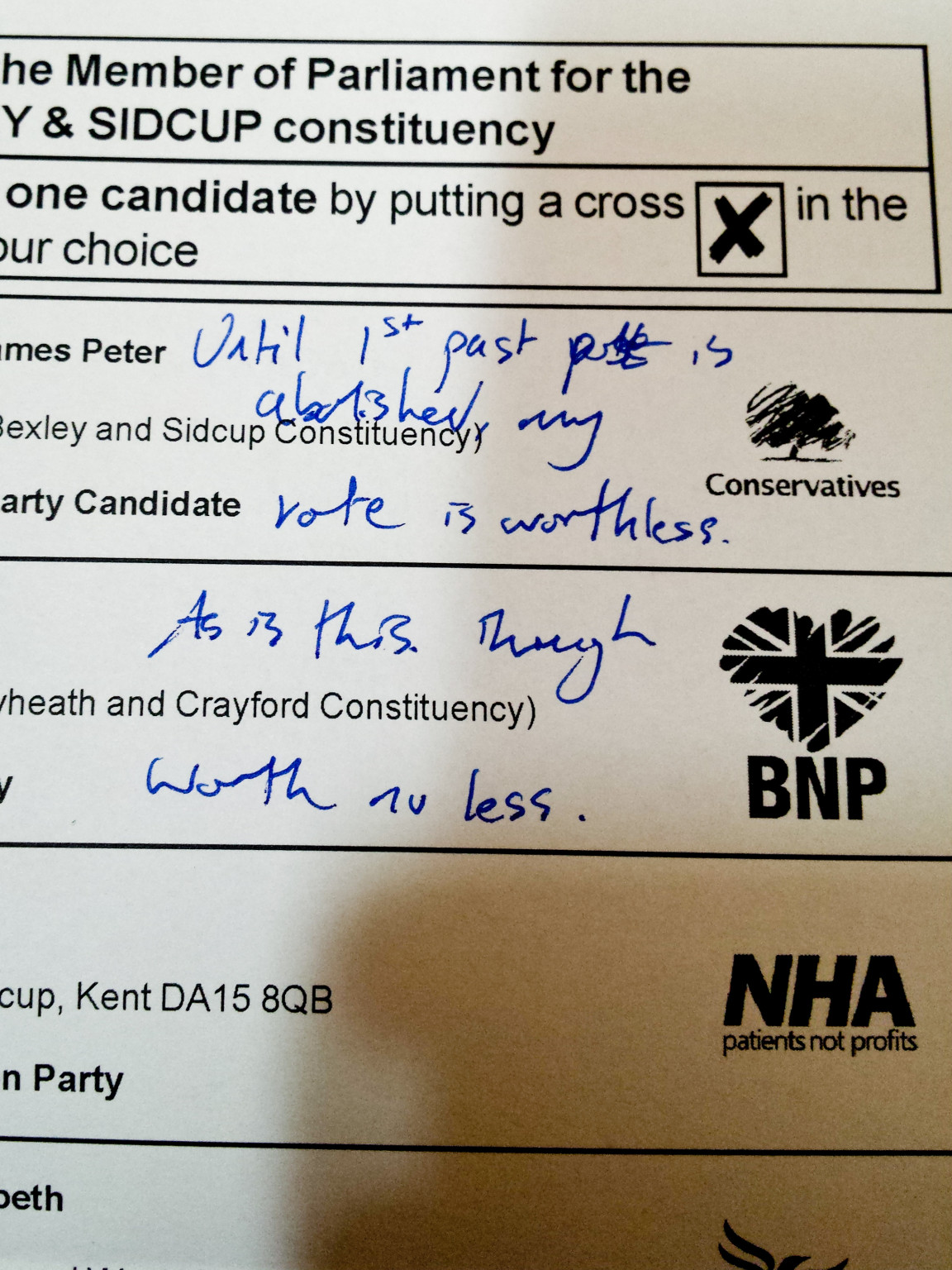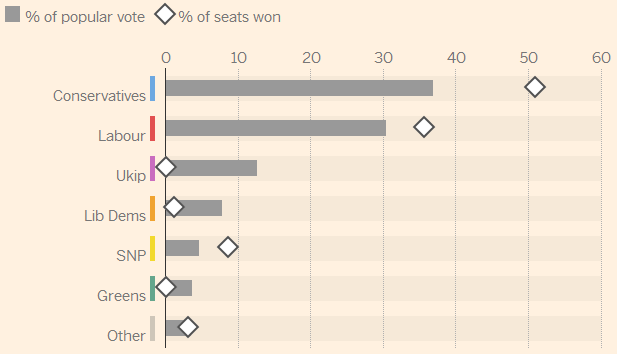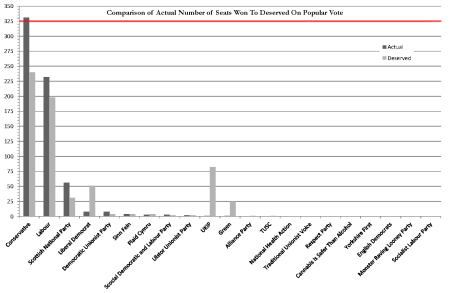
Vote?
Until 1st past post is abolished my vote is worthless. As is this. Though worth no less.
Previous comment, on abstaining, willingness if it counts (and post analysis—pity we didn’t get a worthwhile PR proposal)
Results in: So the Conservatives end up with a majority, which in itself is a disappointment. But should they have done? The answer is obviously no, looking at the popular vote, as summarised by the Financial Times:

The Broken First Past The Post System
Comparison of seat percentage to vote percentage at the 2015 UK general election. From the Financial Times
I’ve taken a look at the figures myself, and present a wider view of the same thing below. The take home is though: No party should be able to have a majority; the Liberal Democrats should not have been quite so decimated; UKIP (much as I abhor their views) should have a much larger representation than they do (because democracy isn’t just picking the views you agree with); the jingoistic SNP shouldn’t have such a large influence (more in keeping of the limited role they play) and wouldn’t ever have been the kingmakers they were seeking to be. A much better democracy must come when no single party has free rein but is checked by other views.

Popular Seats
A comparison of the number of seats won compared to the number expected based on the popular vote share, in the UK 2015 general election (click for bigger)
A comparison of the number of seats won compared to the number expected based on the popular vote share, in the UK 2015 general election
There may be more discussion to come once I’ve thought about it some more.
Comments and Pings